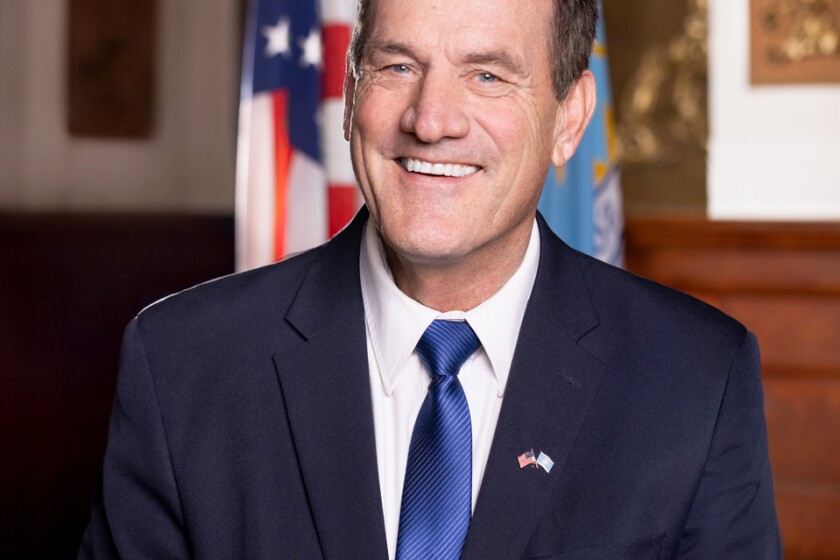PIERRE, S.D. — Gov. Larry Rhoden on March 6, 2025, signed a bill into law that prohibits carbon pipelines from using eminent domain.
House Bill 1052 will stop Summit Carbon Solutions from using eminent domain for its Midwest Carbon Express Pipeline, a five-state, $8 billion project that would capture carbon dioxide emissions from 57 ethanol plants and pipe them to west-central North Dakota for permanent storage underground.
ADVERTISEMENT
In a letter to the legislature and the people of South Dakota, Rhoden outlined his reasons for signing the bill into law.
“I am no stranger to discussion about eminent domain and property rights,” Rhoden wrote. “I’ve fought for private property rights in this Capitol for over 20 years. When I was a legislator, I was the prime sponsor of legislation that reformed eminent domain to protect property rights. I don’t just care about landowners — I am a landowner.”
Rhoden said the ethanol industry will remain an important part of South Dakota’s economy and a key asset as we implement an “all-of-the above energy approach to restore American energy dominance.” He wants to keep South Dakota open for opportunity, for every family, business own and farmer or rancher.
“But those dreams should not be pursued at the expense of others. Freedom ends when it infringes on the freedom of another,” he wrote. “And when those situations arise, ‘governments are instituted among men’ to protect the rights of the people.”
Summit Carbon Solutions continues to seek approval for its project.
"It's very unfortunate that, despite our approvals in Iowa, North Dakota and Minnesota, South Dakota changed the rules in the middle of the game," Summit Carbon Solutions said in a statement to Agweek. "This kind of regulatory uncertainty creates real challenges — not just for our project, but for the ethanol plants in South Dakota that now face competitive disadvantage compared to their counterparts in neighboring states."
Summit Carbon Solutions says the company will continue moving forward.
ADVERTISEMENT
"While this presents obstacles, our project moves forward in states that support investment and innovation, and we will have more news on that soon," the statement said.
The American Carbon Alliance also expressed disappointment in the bill becoming law.
“This ill-advised legislation comes at a time when South Dakota farmers and ethanol producers desperately need new markets to restore profitability,” said Tom Buis, CEO of the American Carbon Alliance, in a statement. “Instead of supporting economic growth, this decision creates unnecessary roadblocks and sends the wrong message to agriculture and rural communities.”
Buis indicated South Dakota would lose opportunity to capitalize on growing markets for low-carbon biofuels, including sustainable aviation fuel.
“Other states are moving forward, and it’s unfortunate to see South Dakota take a step back,” he said.
ADVERTISEMENT
Rhoden said over the past few years, he has become familiar with the details of the pipeline proposed by Summit Carbon Solutions.
“I’ve had hundreds of conversations about this issue. I’ve met with all sides and heard all the arguments,” Rhoden wrote. “I made my decision based on my own consideration of the facts, the policy arguments, legislative history, my own opinions and experience, and my judgment about what is best for South Dakota.”
He said Summit Carbon Solutions needs to regain the trust of the South Dakota landowners. House Bill 1052 does not kill the proposed pipeline project.
“Rather than viewing this legislation as an obstacle to the proposed project, I encourage Summit and others to view it as an opportunity for a need to reset,” Rhoden wrote. “Voluntary easements for this proposed project will still be able to move forward and are not impacted by HB 1052. In fact, without the threat of eminent domain, the opportunity might finally be available for trust to be rebuilt for more productive conversations to occur between Summit and South Dakota landowners.”









